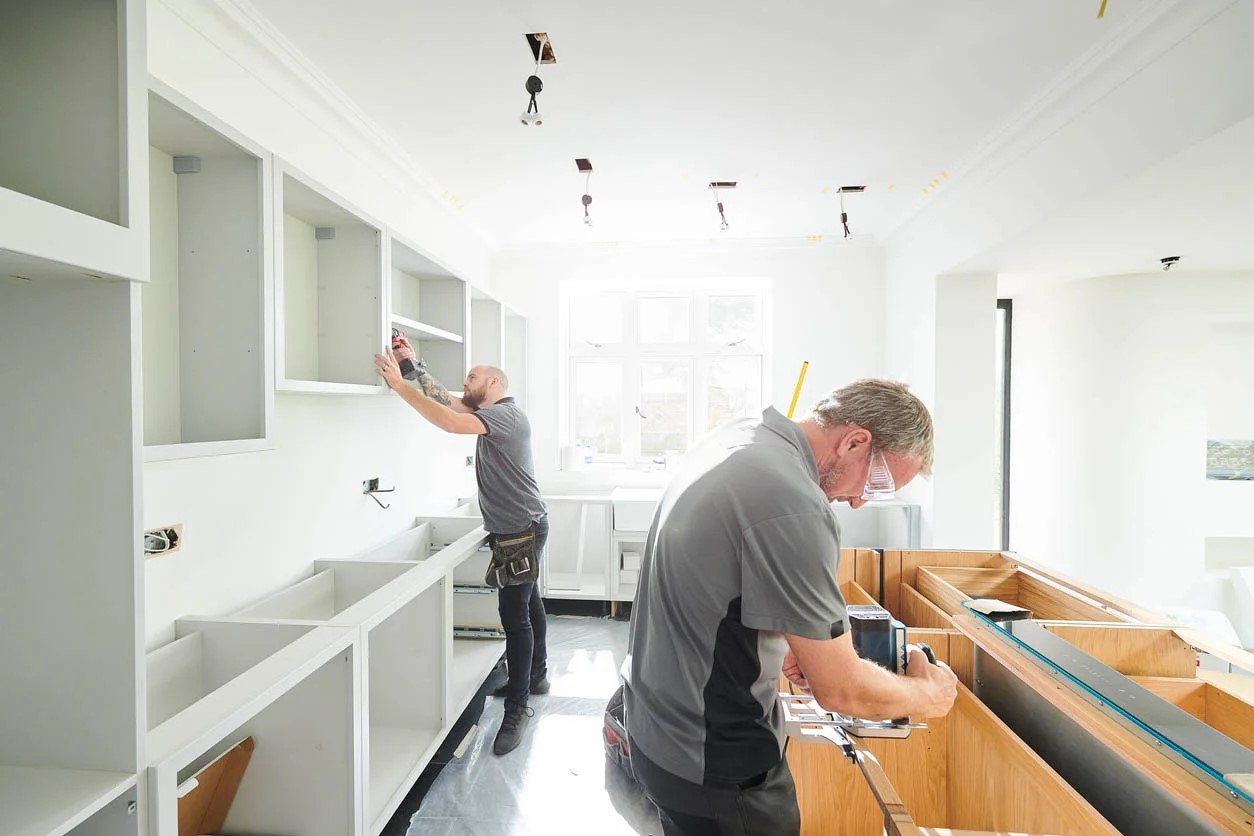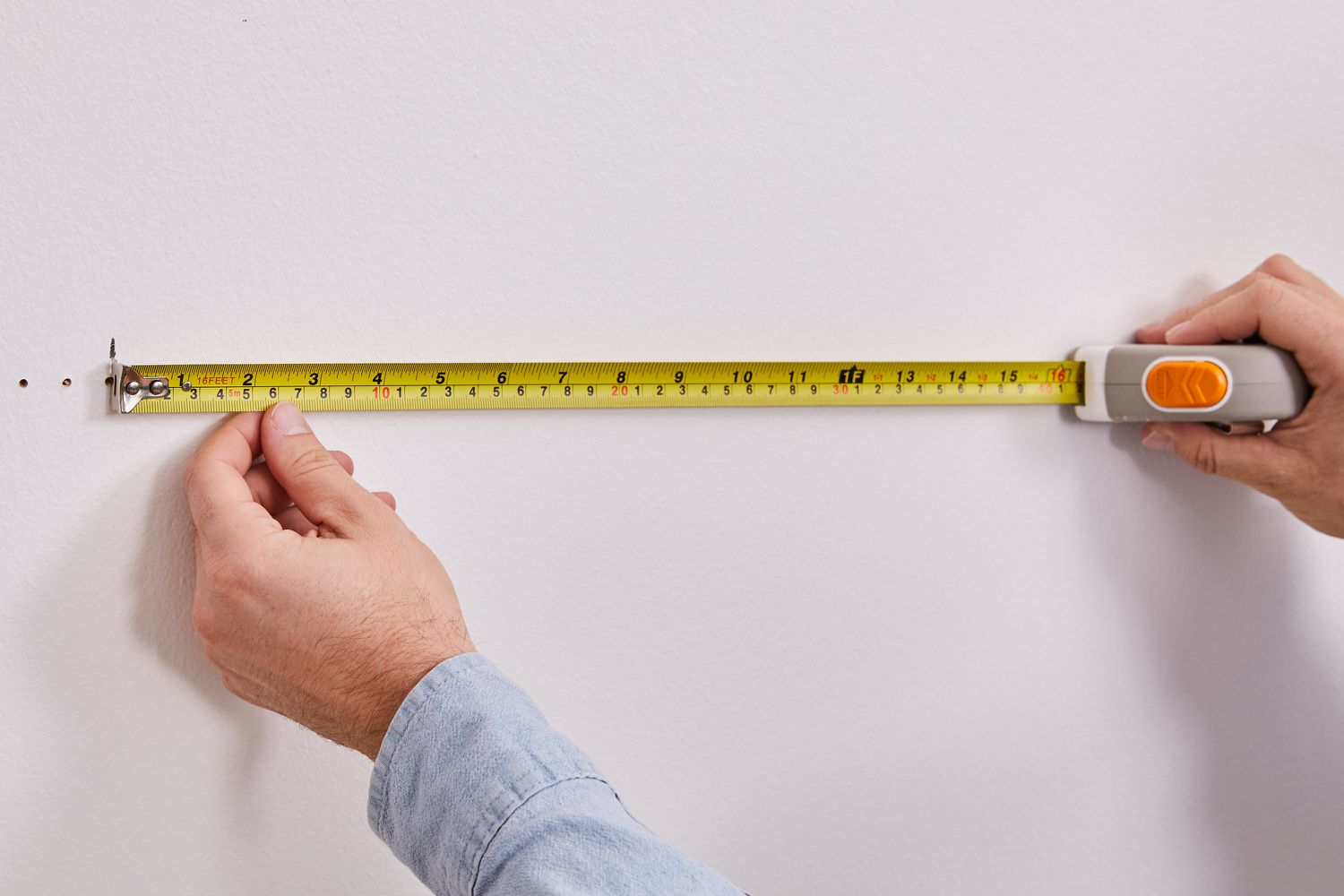Home>Renovation & DIY>Home Renovation Guides>How To Find A Contractor For Home Improvement


Home Renovation Guides
How To Find A Contractor For Home Improvement
Published: December 21, 2023
Looking for a reliable contractor for your home renovation project? Our comprehensive guides will help you find the perfect professional for your home improvement needs. Discover expert tips and advice for hiring the best contractors.
(Many of the links in this article redirect to a specific reviewed product. Your purchase of these products through affiliate links helps to generate commission for Storables.com, at no extra cost. Learn more)
Introduction
So, you've finally decided to take the plunge and renovate your home. Whether it's a small bathroom update or a full-scale kitchen remodel, finding the right contractor is crucial to the success of your project. But where do you start? How do you separate the seasoned professionals from the fly-by-night operators? Fear not! In this comprehensive guide, we'll walk you through the process of finding a contractor for your home improvement project. From understanding your project needs to managing the renovation, we've got you covered. Let's dive in and demystify the world of home improvement contractors.
Key Takeaways:
- Finding the right contractor for your home improvement project involves understanding your needs, researching potential contractors, and conducting thorough interviews to ensure a successful renovation experience.
- Effective project management, open communication, and proactive decision-making are essential for a smooth and rewarding home improvement journey. Embrace the process and trust in the expertise of your chosen contractor.
Understanding Your Home Improvement Project
Before embarking on the journey of finding a contractor, it's essential to have a clear understanding of your home improvement project. Take some time to define your goals and expectations. Are you looking to increase the resale value of your home, or is this renovation primarily for your own enjoyment? Understanding your motivations will help you communicate effectively with potential contractors.
Next, assess the scope of the project. Do you need architectural design services, or do you already have detailed plans in place? Will the project involve structural changes, such as removing walls or adding new windows? Understanding the complexity of the work will enable you to convey accurate information to prospective contractors.
Consider your budget and timeline. Be realistic about how much you can afford to spend and the time frame in which you expect the project to be completed. These factors will play a significant role in the contractor selection process.
Finally, think about your desired outcome. What style are you aiming for? Are you drawn to a modern, minimalist look, or do you prefer a more traditional, cozy feel? Collecting images and examples of your preferred aesthetics can help convey your vision to potential contractors.
By clarifying these aspects of your home improvement project, you'll be better equipped to communicate with contractors and assess their suitability for the job.
Researching Potential Contractors
Now that you have a clear understanding of your home improvement project, it's time to start the process of finding the right contractor. Begin by seeking recommendations from friends, family, and colleagues who have recently completed similar projects. Personal referrals can provide valuable insights into a contractor's work ethic, communication style, and overall performance.
Additionally, utilize online resources to expand your list of potential contractors. Websites such as Angie's List, Houzz, and HomeAdvisor offer reviews and ratings for local contractors. Pay attention to both positive and negative feedback, and look for patterns in the comments. This will help you identify contractors who consistently deliver high-quality work and those who may have recurring issues.
As you compile a list of potential contractors, verify their credentials. Check if they are licensed, bonded, and insured, as these are crucial indicators of a contractor's professionalism and commitment to their craft. You can typically verify this information through your state's licensing board or the contractor's website.
Furthermore, take the time to review each contractor's portfolio. Look for projects similar in scope and style to your own, and assess the quality of their work. A contractor's portfolio can provide valuable insights into their capabilities and the range of projects they have successfully completed.
Lastly, consider the contractor's experience and expertise. How long have they been in business, and what types of projects do they specialize in? A contractor with extensive experience in kitchen renovations may not be the best fit for a large-scale basement remodel. Understanding a contractor's strengths and focus areas will help you narrow down your list to those best suited for your specific project.
By conducting thorough research and due diligence, you can create a shortlist of potential contractors who align with your project requirements and standards.
Interviewing Potential Contractors
Once you have identified a selection of potential contractors, it's time to initiate the interview process. Scheduling face-to-face meetings or virtual consultations allows you to gauge each contractor's professionalism, communication style, and compatibility with your project.
During the interviews, ask open-ended questions to gain insight into the contractor's approach and experience. Inquire about their familiarity with projects similar to yours and how they typically handle challenges that may arise during renovations. Understanding their problem-solving methods and adaptability is crucial in ensuring a smooth and successful project.
Communication is key in any contractor-client relationship. Assess how effectively the contractor listens to your ideas and concerns, and how clearly they convey their own processes and recommendations. A contractor who values open communication and demonstrates active listening can help mitigate misunderstandings and ensure that your vision is accurately realized.
Discuss the logistics of the project, including timelines, subcontractors, and potential disruptions. A reliable contractor should be transparent about the project timeline, the involvement of subcontractors, and measures they will take to minimize any inconvenience to your daily routine.
Furthermore, inquire about the contractor's licensing, insurance coverage, and warranties. A reputable contractor will willingly provide documentation and offer warranties for their work, providing you with peace of mind and protection in the event of unforeseen issues.
Finally, trust your instincts. Pay attention to your rapport with each contractor and assess whether you feel comfortable and confident in their abilities. A positive working relationship is essential for the success of your project, so prioritize contractors who align with your communication style and project vision.
By conducting thorough interviews, you can gain valuable insights into each contractor's expertise, communication skills, and overall suitability for your home improvement project.
Checking References and Reviews
Before making a final decision, it's essential to delve into the references and reviews of the contractors you are considering. Request a list of references from each contractor, and take the time to contact these past clients. Speaking directly with individuals who have worked with the contractor can provide invaluable firsthand insights into their performance, reliability, and the quality of their work.
When contacting references, ask specific questions about the contractor's adherence to timelines, communication style, and the overall satisfaction with the completed project. Inquire about how the contractor handled unforeseen challenges and whether they demonstrated professionalism and integrity throughout the renovation process.
In addition to references, scour online reviews on platforms such as Google, Yelp, and social media. Pay attention to the recurring themes in the reviews, focusing on aspects such as workmanship, adherence to schedules, and the contractor's responsiveness to client concerns. While individual reviews should be taken with a grain of salt, patterns in feedback can offer valuable insights into a contractor's track record.
Furthermore, verify the contractor's standing with the Better Business Bureau (BBB) and check for any complaints or unresolved issues. A favorable BBB rating indicates a commitment to resolving customer concerns and maintaining a high standard of service.
By thoroughly vetting references and reviews, you can gain a comprehensive understanding of each contractor's reputation, reliability, and the experiences of past clients. This information is instrumental in making an informed decision when selecting the ideal contractor for your home improvement project.
When looking for a contractor for home improvement, ask for recommendations from friends and family, check online reviews, and always request references from the contractor before making a decision.
Getting Bids and Estimates
Once you have narrowed down your list of potential contractors, it’s time to gather bids and estimates for your home improvement project. Request detailed proposals from each contractor, ensuring that the scope of work, materials, labor costs, and project timeline are clearly outlined.
When reviewing the bids, be wary of unusually low or high estimates. While a low bid may seem appealing, it could indicate subpar materials or potential hidden costs. Conversely, an excessively high bid may not necessarily guarantee superior quality. Look for bids that offer a balance of competitive pricing and comprehensive details.
It’s important to compare the proposals on a level playing field. Ensure that each contractor is quoting for the same scope of work and materials. This will allow for a fair comparison of the estimates and help you make an informed decision based on the value offered by each contractor.
During this phase, don’t hesitate to ask questions or seek clarification on any aspects of the proposals that are unclear. A reputable contractor will be transparent and willing to address any concerns or provide additional information to aid in your decision-making process.
Consider the overall value offered by each contractor, taking into account their experience, reputation, and the thoroughness of their proposals. While cost is an important factor, it should not be the sole determinant in selecting a contractor. Assess the overall package, including the quality of work, communication, and the contractor’s ability to meet your specific project requirements.
By carefully evaluating the bids and estimates, you can select a contractor who not only offers a competitive price but also demonstrates a clear understanding of your project and a commitment to delivering high-quality results.
Signing a Contract
After selecting a contractor for your home improvement project, the next crucial step is to formalize the agreement through a comprehensive contract. A well-crafted contract serves to protect both you and the contractor, outlining the terms, expectations, and responsibilities of each party involved in the renovation.
Ensure that the contract includes detailed specifics such as the project scope, materials to be used, project timeline, payment schedule, and any warranties or guarantees offered by the contractor. It’s essential that the contract reflects the discussions and agreements made during the selection process and accurately captures the expectations for the project.
Review the contract thoroughly and seek clarification on any ambiguous or unclear clauses. Pay attention to details such as dispute resolution procedures, change order processes, and the handling of unforeseen circumstances that may impact the project timeline or budget.
Verify that the contractor’s insurance and licensing information is accurately documented in the contract, providing you with the necessary assurances and protections. Additionally, confirm that the contract includes provisions for any necessary permits and inspections required for the renovation project.
Prior to signing the contract, ensure that you are comfortable with the terms outlined and that all your questions and concerns have been addressed satisfactorily. It is advisable to seek legal counsel or professional advice when reviewing and finalizing the contract to ensure that your interests are adequately safeguarded.
Once the contract is signed by both parties, retain a copy for your records and provide the contractor with any required deposits or initial payments as specified in the agreement. A clear and comprehensive contract sets the foundation for a successful and transparent working relationship with your chosen contractor.
Managing the Project
As the home improvement project commences, effective project management plays a pivotal role in ensuring a successful outcome. Open and clear communication with your contractor is essential throughout the renovation process. Establish regular check-ins to review progress, address any concerns, and make decisions as needed.
Stay actively engaged in the project by maintaining a detailed log of discussions, agreements, and any changes to the original plan. This can help prevent misunderstandings and serve as a reference point for project-related decisions.
Be prepared for the unexpected. Renovation projects can encounter unforeseen challenges, such as hidden structural issues or supply chain disruptions. Flexibility and open communication with your contractor can help navigate these obstacles effectively.
Respect the project timeline and be mindful of any decisions that may impact the schedule. Timely decisions on material selections and design choices can contribute to the smooth progression of the project and minimize delays.
Address any concerns promptly. If issues arise during the renovation, communicate openly with your contractor to find mutually agreeable solutions. Timely resolution of concerns can prevent minor issues from escalating and impacting the overall project timeline.
Regularly inspect the work in progress to ensure that it aligns with the agreed-upon specifications and quality standards. If deviations are noted, address them with the contractor promptly to maintain the desired outcome of the project.
Lastly, maintain a positive and collaborative relationship with your contractor. Acknowledge and appreciate their efforts and accomplishments, fostering a constructive working environment that can contribute to the success of the renovation.
By actively managing the project and maintaining open communication with your contractor, you can contribute to a positive and efficient renovation experience, ultimately leading to the successful completion of your home improvement project.
Conclusion
Congratulations on embarking on the exciting journey of renovating your home! Finding the right contractor for your home improvement project is a crucial step towards achieving your vision for a revitalized living space. By understanding your project needs, researching potential contractors, and conducting thorough interviews, you have laid a solid foundation for a successful renovation experience.
Checking references and reviews has provided you with valuable insights into the reputations and track records of the contractors on your shortlist. Gathering bids and estimates has allowed you to assess the value and thoroughness of each contractor’s proposals, guiding you towards making an informed decision.
Signing a comprehensive contract ensures that the expectations, responsibilities, and terms of the project are clearly defined, providing a framework for a transparent and successful working relationship with your chosen contractor.
As you embark on the renovation journey, effective project management will be instrumental in ensuring that the project progresses smoothly and aligns with your vision. Open communication, proactive decision-making, and a collaborative approach with your contractor can contribute to a positive and rewarding renovation experience.
Remember, the success of your home improvement project is not solely determined by the skills of the contractor, but also by your active involvement, clear communication, and willingness to adapt to unforeseen circumstances. Embrace the process, stay engaged, and trust in the expertise of your chosen contractor.
With careful planning, diligent research, and effective communication, your home improvement project has the potential to transform your living space into the haven you envision. Best of luck on your renovation journey, and may your home be filled with joy and beauty as you bring your vision to life.
Frequently Asked Questions about How To Find A Contractor For Home Improvement
Was this page helpful?
At Storables.com, we guarantee accurate and reliable information. Our content, validated by Expert Board Contributors, is crafted following stringent Editorial Policies. We're committed to providing you with well-researched, expert-backed insights for all your informational needs.















0 thoughts on “How To Find A Contractor For Home Improvement”